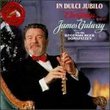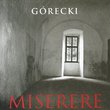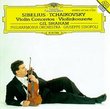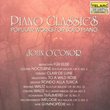| All Artists: Benjamin Britten, New York Philharmonic, Carol Vaness, Jerry Hadley, Kurt Masur, Thomas Hampson, American Boychoir, Westminster Symphonic Choir Title: Britten: War Requiem / Vaness, Hadley, Hampson; Masur Members Wishing: 1 Total Copies: 0 Label: Teldec Release Date: 5/19/1998 Genre: Classical Styles: Opera & Classical Vocal, Historical Periods, Early Music, Symphonies Number of Discs: 2 SwapaCD Credits: 2 UPC: 706301711521 |
Search - Benjamin Britten, New York Philharmonic, Carol Vaness :: Britten: War Requiem / Vaness, Hadley, Hampson; Masur
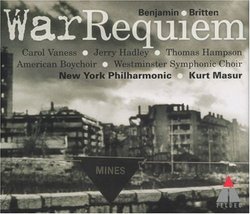 | Benjamin Britten, New York Philharmonic, Carol Vaness Britten: War Requiem / Vaness, Hadley, Hampson; Masur Genre: Classical
|
Larger Image |
CD DetailsSimilarly Requested CDs
|
CD ReviewsUnparalleled recording of Britten's masterpiece Brett A. Kniess | 12/11/1998 (5 out of 5 stars) "This latest offering of Britten's War Requiem is the finest available. What sets it apart from the crowd is the absolute precision of the chorus. You will hear perfectly matched vowels and no stray consonants. It is only through this attention to detail that such mastery in choral singing is attained. Thanks to the exceptional sensitivity of chorus master Joseph Flummerfelt, this recording shines as an example of what the War Requiem should sound like-vital, precise and moving. You will not be disappointed with any aspect of this recording." Gritty Requiem Brett A. Kniess | Madison, WI | 04/06/2000 (5 out of 5 stars) "Benjamin Britten's War Requiem stands today as possibly the finest and most important composition ever. While I do not assert to even claim this, it certainly ranks among the greatest works in music history. Not only does Britten use the subject of the Requiem, which is steeped in tradition, Britten puts its context in direct cohesion on matters of war, thus the title. The text is a melding of the ancient sequences of the Mass for the Dead, but incorporating the poetry of Wilfred Owen, a WWI veteran poet; combining secular humanism, social issues, and sacred subjects into one. The English poetry comments on the progression of Latin prayers and sequences, and incorporates the theme of war, drama, and personal significance into an already emotional subject of death. The form of the work is straightforward: Requiem Aeternam, Dies Irae, Offertorium, Sanctus, Agnus Dei, and Libera Me; again with added poetry. The interesting part of the music is how Britten portrays the text with the performers. A boy's choir (Cherubim) sing only in Latin, are removed spatially from the rest of the performers, and only accompanied by organ. The mixed chorus and soprano soloist (Heavenly Host), also only sing in Latin, but are accompanied by a large orchestra. The tenor and bass soloists (soldiers/mankind) only sing the Owens poetry in English and are aided by a small/intimate chamber ensemble. The music seems to belie the opening Requiem Aeternam (Rest Eternal) and Kyrie Eleison (Lord, have mercy). An ominous pulsing accompanies choral chanting, seemingly resurrecting ancient rituals of the church, and the constant use of the tritone (the most dissonant interval), is a fearful rendering of rest in context of war, as well as the setting of the scene with Owens' poetry. The Dies Irae (Day of Wrath) has a lot of brass calls, not only a sound of battle, but of the final judgment. The English poetry is beautiful, including an interesting personification of Death. An ominous plodding of marching is evident in the main Dies Irae theme, eventually full of terror, but the movement features some hauntingly beautiful melodies in the Lacrymosa for soprano and chorus, and the Recordare for women's chorus. The seed of Abraham is usually announced in the Offertory, as it is with Britten, in an upbeat fugue, but here it is interrupted by the story of Abraham, who sacrificed his son for God; an ingenious and emotional link between the Latin and English. Many interesting techniques are used in the Sanctus, clanging bells reminiscent of the Anglican Mass herald the opening, while random chanting brings the movement to a stunning climax as well as the Hosanna's with brass flourishes. The Agnus Dei features a beautiful tenor solo over unison strings in 5/16 time, while the chorus chants in Latin; a slightly rocking, but emotional short portion of the work. The final part, Libera Me, is the most tension filled and the most dissonant of all. Poignantly, two men who meet each other in battle, meet as equals in death, a soothing chorus of peace, as well as reminiscent chantings of the opening tritone return, but peace is the ultimate feeling. A work of insurmountable beauty, passion, and horror is unfortunately as timely today, as it was in the 1960's. Kurt Masur, usually uninspired, leads a passionate rendering of the War Requiem with the New York Philharmonic. An all-star cast: Carol Vanness, Jerry Hadley, and Thomas Hampson are excellent soloists. The two choirs, Westminster College Choir and the American Boy's Choir are extremely crisp and clean in text and tone, both full and rich. This Teldec release is a live recording, a reason for the energy preserved, but manages to get all of the spatial and textural differences correct. The spacious and echo-ish children's choir with organ vs. the full mixed choir and orchestra vs. the dry, intimate chamber ensemble is remarkable; all voices speak so well and so differently. The music is highly dramatic, almost on an operatic level. The dichotomy of the ancient ritual vs. the modern harmonies and poetry are greatly portrayed on this disk. The only setback comes with a live recording: audience coughing and rustling mainly. This disk is comparable, from an American standpoint, to the Shaw, except exceeding with the passion of a live performance; only the Hickox version on Chandos, an English performance, is rival to this one (compare on your own). Nonetheless, an excellent choice of recording for this masterwork." Very Decent Performance Shota Hanai | Torrance, CA | 05/20/2005 (4 out of 5 stars) "Buying a CD of Britten's massive and powerful War Requiem is hard to buy (being expensive) but even harder to find at a CD store. Performing this highly difficult piece is a HUGE, H-U-U-U-GE project, and only few "units" of soloists, chorusus, and the chamber and full orchestras actually did it. With so few recordings, I'm in search of the most impressive performance available.
I first bought the one with Brittin conducting the London Symphony Orchestra on Decca. Done by the very composer implies that it is supposedly good and even definitive. The soloists were great and their singing truly varied depending on the different moods throughout the piece. Later on I bought Shaw's recording. The soloists were great, especially the tenor. The orchestra's performance, however, was a disappointment; it didn't have this "drive" as much as what Britten has done. The climax (Libera Me) in particular was weak, the machine-guns (the snare) was heard as if from a distance, and brass weren't giving too much punch. Then I bought this version, with Kurt Masur leading one of my favorite American orchestras, the New York Philharmonic. This one is overall a very descent performance. Why four stars? The bad news (before the good news). The tenor in this recording, how he sings, is not really what I had in mind or prefered. The first half was okay, but the second half was when his singing began to unravel. He "bends" too much like some pop-singer for Agnus Dei, and in "Strage Meetings", the singing is a bit too active, when it's supposedly be more quiet and somber. The baritone is also a bit too alive for this segment. The good news? The orchestras and the chorusus are great, and there are few parts even more impressive than the Britten recording. Once again, going to the climax (Libera Me), the sound was engulfing me to a battlefield. The brass really sounds so SPECTACULAR as a movie. And the "Nuclear Explosion" is unforgettable. That's only my opinion, because how I rate the performance (especially the soloists), may be different from others. Britten's version is worth the best buying but if you want to collect different performances or try them out, this CD may be a choice for you." |

 Track Listings (13) - Disc #1
Track Listings (13) - Disc #1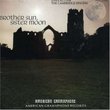

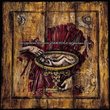


![Across The Universe [Deluxe Edition]](https://nationalbookswap.com/cd//m/51/1251/1241251.jpg)
